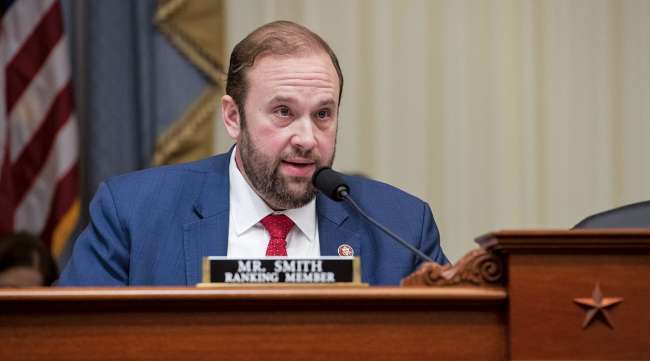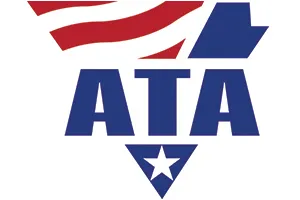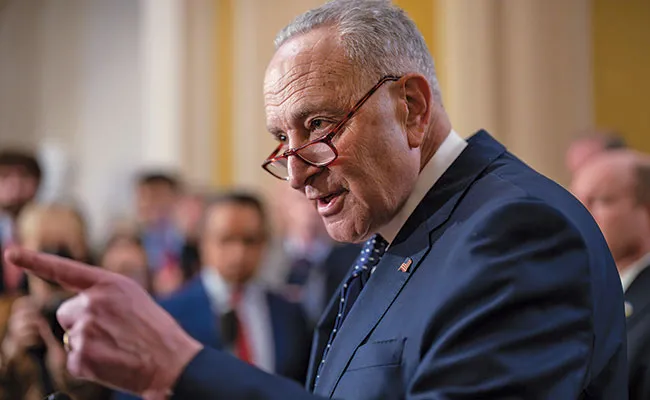Senior Reporter
House Passes Tax Bill Amid Budget Negotiations

[Stay on top of transportation news: Get TTNews in your inbox.]
A comprehensive tax measure advanced in the U.S. House of Representatives on Jan. 31 as congressional leaders continue to negotiate fiscal 2024 transportation funding legislation.
Members of the House gave bipartisan backing to a $79 billion tax policy bill specific to businesses, families and disaster-hit areas. Ways and Means Committee Chairman Jason Smith (R-Mo.) led the passage of the Tax Relief for American Families and Workers Act.
“This tax package is pro-growth, pro-jobs and pro-American. Both the $600 billion of pro-growth tax incentives that benefit job creators and the structure and work requirements of the Child Tax Credit in this legislation were first signed into law by President [Donald] Trump,” Smith said after the House voted 357-70. “Last year, the Ways and Means Committee traveled the country and listened to small business owners and American workers about their ideas to make life better for themselves and their neighbors.”
Specifically, the bill is designed to invest billions of dollars in research and development operations across various sectors, such as freight and manufacturing. It would enhance take-home pay for certain workers and make adjustments specific to working families based on inflation. It also would update some employee retention tax credits and dedicate disaster tax relief for regions that experienced hurricanes, flooding and wildfires.

American Trucking Associations is among stakeholders supportive of the bill. “The Tax Relief for American Families and Workers Act advances several trucking priorities to promote much-needed investments in our supply chain, like restoring and extending 100% expensing for new equipment,” said Ed Gilroy, ATA’s chief advocacy and public affairs officer. “We support this bipartisan effort that will pave the way for greater freight capacity, efficiency and innovation while strengthening small businesses and fostering good-paying jobs in the trucking industry.”
Rep. Tom Cole (R-Okla.), chairman of the transportation funding subcommittee, touted the bill’s focus on encouraging job creation as well as assisting families. “The U.S. tax code should be written to benefit small businesses, families and workers, not hurt them,” he said.

Cole
Cole continued, “For the past few years, Americans have been crushed by runaway inflation and high interest rates, and Congress should work together to give the economy a boost and help hardworking Americans keep more of what they have earned.”
Specific to transportation safety, the bill would ensure residents affected by a 2023 freight rail derailment in East Palestine, Ohio, do not receive a large tax bill linked to compensation for their losses.
“From day one, I promised to support the working people and families in our communities by putting more money back into your pockets,” said Rep. Emilia Sykes (D-Ohio), co-sponsor of the Reducing Accidents In Locomotives (RAIL) Act, a bill that responds to last year’s derailment in East Palestine. “I’m proud to support this pro-growth, pro-family bipartisan bill which will cut taxes and lower costs for families and small businesses.”

Senate Majority Leader Chuck Schumer (D-N.Y.) did not announce a timeline for a vote on the bill but did say, "The bottom line is ... I suppose the tax bill, as I've stated before. I'm working with Sen. Wyden to figure out the best way forward." (J. Scott Applewhite/Associated Press)
The House’s approval moved the bill to the Senate for consideration. That chamber’s leader, Sen. Chuck Schumer (D-N.Y.), did not announce a timeline for a vote. The majority leader told reporters he would review the bill with sponsors, such as tax policy Finance Committee Chairman Ron Wyden (D-Ore.).
“The bottom line is … I support the tax bill, as I’ve stated before,” Schumer said. “I’m working with Sen. Wyden to figure out the best way forward.”
Soon after the bill’s passage, Wyden pressed for bipartisanship. “This was a strong vote in the House, and it means the action is moving over to the Senate,” the Oregon senator said. “I’m going to work with Leader Schumer and my colleagues on both sides to get this done as soon as possible.”
Want more news? Listen to today's daily briefing above or go here for more info
Relatedly, congressional leaders indicated they continue to negotiate the dozen pending fiscal 2024 appropriations bills. Congress recently approved short-term funding authority for the U.S. Department of Transportation and non-defense agencies through March 1. For defense-related agencies, funding expires March 8. “There is a mutual understanding that the only way to finally end the saga of 2024 funding is to write government funding bills that can earn the support of both Democrats and Republicans in the House and in the Senate,” Rep. Rosa DeLauro (D-Conn.), House Appropriations Committee ranking member, said before the short-term bill’s approval in January.
Last year, the Senate advanced its fiscal 2024 transportation appropriations bill. House Republicans have not advanced their version of the transportation measure. Both the Senate and House bills would dedicate nearly $1 billion for the Federal Motor Carrier Safety Administration.




